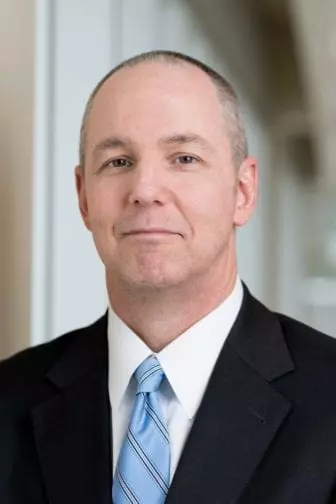By Peter H. Lewis and Barbara Durr, Asheville Watchdog
For a hospital system organized as a not-for-profit charity, Mission Health made a lot of profits.
The money left over after Asheville-based Mission subtracted its expenses from its revenue — what would be called profit at a for-profit hospital — grew year after year, right up to 2018, when Mission’s directors surprised nearly everyone by announcing plans to sell out to Tennessee-based HCA Healthcare, the nation’s biggest chain of for-profit hospitals.
Mission at the time was as strong financially as it had ever been, which Mission’s executives said made it the perfect time to sell. They cited trends and studies suggesting that the Mission system faced a bleak future of relentless cost-cutting.
The cost-cutting apparently didn’t include the paychecks of Mission executives, which grew for years untouched by the financial scalpel.
Tax records examined by Asheville Watchdog reveal that in the decade leading up to the $1.5 billion sale of Asheville’s community-owned hospital system, a steadily increasing amount of Mission’s revenue went to salaries and bonuses for an increasingly crowded suite of non-clinical executives.
The records show:
- Mission’s president and chief executive officer, Dr. Ronald Paulus, received more than $4 million in total compensation in the final four months he worked at Mission, before he resigned to accept a strategic consulting job with HCA, the terms of which remain secret. The amount he received from Mission included more than $1.1 million in bonus and incentives, plus accelerated payouts of all deferred compensation accounts that normally would have been paid out over several years.
- Paulus was paid $2,460,723, including a $500,000 bonus, in 2018, the last full year of Mission’s independence.
- Mission’s other executives did well under Paulus. The 24 highest-paid employees received at least $330,000 a year in salary and bonuses, according to Mission’s tax filing for the fiscal year ending in 2018. Fourteen were paid more than $500,000.
- Women outnumbered men — 13 of those 24 top-paid employees — but averaged $566,308 in compensation compared to $765,545 for the men. Dr. Jill Hoggard Green, Mission Health’s chief operating officer, was the highest paid woman at $1.25 million.
- Of the 25 highest-compensated employees listed on Mission Health’s final tax filing, 20 received “bonus and incentive” payments of more than $100,000 each. The filing covers the period just before and after Mission changed hands.
- Overall, executive pay for the top five executives at Mission Health more than doubled during Paulus’s eight-year tenure, outpacing pay increases for physicians, surgeons, nurses, and other clinical workers. Only six executives were listed as “highly compensated” on Mission’s 2011 tax return. By 2018, there were 25.
“Acceptable” operating margins

Unlike for-profit healthcare companies like HCA, which can sweeten executive compensation using stock options and outside investor money, all the money that nonprofit Mission Health paid to its top executives came out of revenue, reducing the money left over to reinvest in the healthcare system.
Even as executive pay ballooned at Mission, Paulus told The Washington Post in 2018 that Mission had to cut costs $50 million to $80 million in each of the previous four years to preserve an “acceptable operating margin.”
Operating margin is a measure of financial performance directly tied to how much money the hospital system makes from patient care and related clinical operations. Growth in operating margins is one measure used to establish executive compensation.
To preserve those margins, Mission’s executive leadership demanded that some physicians and surgeons accept significantly lower fees, leading many long-time care providers to quit the Mission system. The executives also demanded concessions from nurses, and reduced staffing levels.
In one effort to increase margins, Paulus and other Mission executives attempted to force Blue Cross and Blue Shield of North Carolina to pay higher reimbursements, but the tactic backfired, instead forcing most of Mission’s insured patients to pay higher out-of-network co-payments for months before Mission ultimately backed down.
Raises for nurses measured in pennies
In 2016 Mission established “a new living wage of $11 hourly” for hundreds of hospital workers. Assuming a 40-hour work week for 52 weeks a year, an hourly wage of $11 is the equivalent of $22,880 a year in salary.
Based on his reported fiscal-year 2017 total compensation, Paulus collected $1,183 an hour, or $22,880 every two and a half days.

The average salary for registered nurses (RNs) in North Carolina in fiscal 2017 was $62,560, more than $10,000 per year lower than the national average, according to figures provided by the federal Bureau of Labor Statistics. Figures for Mission Hospital were unavailable. In 2011, shortly after Paulus arrived at Mission, the average RN salary in North Carolina was $60,960, meaning they got an average raise of $267 a year from 2011 to 2017. That comes to about 12 cents an hour each year.
Earlier this year the nurses at Mission Hospital voted to join National Nurses United, the biggest collective bargaining union of registered nurses.
Executive pay more than doubles
Mission was not alone in paying generous salaries and bonuses to its non-clinical executives. Multiple studies have shown that salary increases for nonprofit hospital CEOs nationwide far outpaced those for surgeons, physicians, and registered nurses over the past 15 years, contributing disproportionately to the rise in healthcare costs.
Pay growth for nonprofit hospital chief financial officers trailed CEOs only slightly over the same period. Mission Health’s CFO at the time of the sale, Paul McDowell, took home more than $1 million for the four months immediately preceding the sale, tax records show, including a bonus of $317,479 and accelerated payouts of deferred compensation.
Overall, executive pay at Mission Health more than doubled in the eight years preceding the sale. In Paulus’s first year as CEO, the top five executives at Mission took home a combined $3,766,977. In the fiscal year ending in 2019, which included Mission’s final few months of independence, the top five executives took home $8,192,615.
Even so, that pales in comparison to the $26.8 million in total compensation paid in 2019 to Sam Hazen, CEO of HCA Healthcare, Mission’s owner. His annual compensation last year was more than 1,000 times higher than that of minimum wage workers at Mission Hospital, now $12.50 an hour.
‘Upper echelon’ pay
Paulus’s base salary and bonuses appear to be “upper echelon” but not necessarily out of line with other comparable nonprofit hospitals and hospital systems with billion-dollar-plus revenues, said Tom Bailey, principal officer and senior consultant at Total Compensation Solutions of Armonk, N.Y., a compensation consultancy specializing in not-for-profit healthcare organizations.

“The first two things I take into consideration are the hospital’s size and location,” Bailey said, adding that other factors include “how long a person has been in that position, and did Mission thrive under his leadership?”
By many measures, it did. In the eight years that Paulus led Mission, it grew to become the state’s sixth-largest health system. Including the acquisition of Highlands-Cashiers Hospital in 2017, Mission Health’s net assets increased to $1.78 billion in the final year of Paulus’s leadership, up from $989 million when he arrived.
Six times in his tenure, Mission Health was named one of the nation’s top 15 health systems by IBM Watson Health. Mission Hospital was also recognized as one of the top hospitals in the nation by U.S. News & World Report in its 2018-2019 edition of Best Hospitals.
Eugene Washington, president and CEO of the Duke University Health System, received $2,534,912 in Duke’s 2017 fiscal year, according to its 2017 IRS 990. Mission in its 2017 fiscal year paid Paulus $2,460,723, a roughly comparable figure.
Both Duke and Mission were nonprofit integrated health systems based in North Carolina. However, the Duke system had total revenue of $3.33 billion, compared to Mission Health’s $1.8 billion; Duke’s gross assets and net assets were also significantly larger than Mission’s. Also, Duke is a big city hospital system, where salaries typically are higher than at rural hospitals.
Carl Armato, president and CEO of nonprofit Novant Health Inc. of Winston-Salem, received $3.4 million in total compensation in Novant’s 2017 fiscal year. Novant operates 15 hospitals and is awaiting approval from N.C. Attorney General Josh Stein to acquire New Hanover Regional Medical Center in Wilmington.
Last month, Novant reported that Armato got a raise in 2019 to $4.14 million.
Silence continues
In keeping with community-owned Mission Health’s legacy of disdain for public accountability, no one contacted by Asheville Watchdog would comment on Mission’s tax filings or executive remuneration.
Paulus did not respond to a request for comment.
A spokesperson for the HCA Healthcare North Carolina Division/Mission Health said HCA-Mission would not comment on any events that occurred prior to Feb. 1, 2019, the date HCA formally took control of Mission Health.
People listed on tax filings as principal officers and directors of ANC Healthcare Inc., the successor nonprofit that filed the final tax returns for the former Mission Health System and Mission Hospital, did not respond to repeated requests for comment. Records show that ANC (for Asheville North Carolina) Healthcare is based in Winter Park, Flo., and is managed by SOLIC Capital Management of Evanston, Ill.
A spokeswoman for Asheville-based Dogwood Health Trust, the nonprofit created by Mission to receive the assets from the Mission sale and led by former Mission board chairs, declined to comment, saying Dogwood has had no connection to Mission or HCA since the sale. Charles Ayscue, former chief financial officer of Mission Health before the sale, and now interim CFO of Dogwood, declined to comment.
As Asheville Watchdog reported earlier, Mission inserted nondisclosure and nondisparagement clauses in its sales contract with HCA that, according to legal advisors to Dogwood Health Trust, prohibit anyone involved with the Mission-HCA sale from speaking publicly about the deal, forever.
Asheville Watchdog is a nonprofit news team producing stories that matter to Asheville and Buncombe County. Peter H. Lewis is a former senior writer at The New York Times. Barbara Durr is a former correspondent for The Financial Times of London. Contact us at avlwatchdog@gmail.com.




This whole mess is symptomatic of our financialized society. We are all complicit and we are all affected.
I’m afraid it will go to crisis. Many people will get hurt.
are these people still residing here ? this really is an outrage…
Seems like mostly symbolic reporting if we don’t know how Mission’s overall labor budget relates to their highly compensated employees. How many nurses did Mission employ during the period? How many nursing staff?
Not sure what is meant by “symbolic reporting.” Many investigative reporters use anonymous sources so they can get at the truth (“Watergate” is best example). The good ones, i.e. NY Times and Washington Post, have protocols in place to ensure anonymously-given information is verified. Give one of the reporters on this story having worked for the NYTimes, could AVL Watchdog increase its service to the community by using such sources in a responsible, credible way? How did Cecil Bothwell manage to break open the Bobby Medford story? Perhaps Mr. Lewis can tell us why he or AVL Watchdog have not located their own “Deep Throat” on this and other matters vital to our community. Be a real Watch dog, not just one that barks.
Symbolic in the sense that it’s representative of ideological disapproval without actually giving us hard numbers on the budget so that we can determine if raise freezes etc. were actually warranted.
As far as sources, they’re using publicly available information from tax filings. No secret agent stuff here. You can get this from pretty much any firm of this size.
You’re not going to get a deep cover source on this because there is zero incentive to turn over routine accounting that accords with normal industry practices to media. And media would not be competent to understand it anyway.
There’s not only zero incentive to turn over accounting information to media, there’s an enormous disincentive to violate nondisclosure agreements that I believe most if not all Mission and HCA employees must sign as a condition of employment.
I certainly would not be competent to understand accounting records myself, but I must say that Asheville Watchdog has shown its ability to access folks with more specialized data and accounting backgrounds on an as-needed basis. I believe it would be wrong to assume that Asheville Watchdog would be unqualified to interpret such information.
Thank you for that reply. Yes, there are serious obstacles to getting confidential information, but there may be people, like “Deep Throat,” who were privy to what was going on and recognize that there was malfeasance that needs to be exposed. Would it be possible for Mr. Lewis to state what his/AVL Watchdog’s policies are on using anonymous sources.
Also interested in knowing if Cecil Bothwell had “informants” when he exposed the Bobby Medford wrong doing.
NDAs there may be, but handing over Mission’s financials to media for no reason would be a serious breach of ethics.
Hi. I’m Peter Lewis, and I wrote this article for Asheville Watchdog. There are several questions in this thread that I’ll try to address.
First, behind the scenes: ANC Healthcare, the organization formerly known as Mission Health System Inc., did not file its 2018 form 990 with the IRS until mid November 2020. In seeking answers about this return as well as previous returns for Mission Health during the Ron Paulus years, we reached out to ANC, to Dogwood Health Trust, and to former Mission executives who would have been involved in the preparation of the tax returns. Despite multiple attempts over several weeks, no one would answer any questions about the tax returns. This is noted in our story.
The article is entirely based on publicly available documents. We did not use any anonymous sources in the reporting of this story. We focused this story on executive compensation because it was the most straight-forward aspect of the tax returns. Our original intent was to do a more in-depth analysis, but that will have to wait until someone with experience in nonprofit healthcare accounting steps forward to help us.
HCA-Mission refuses to disclose any information about staffing levels, including nurses, either currently or historically. In fact, HCA-Mission told me it would not address any questions whatsoever about anything that occurred before Feb. 1, 2019, when HCA took over.
Why haven’t we located our own “Deep Throats” on this and other matters vital to our community? Given that confidential sources are confidential because they don’t want the public to know who they are, we rely on sources coming to us. Consider this an open invitation to reach out if you have insider knowledge.
Dogwood’s legal counsel — the same counsel used by Mission — informs us that the nondisclosure and nondisparagement contracts they required all parties to sign are effective “in perpetuity,” in other words, forever. Anyone with inside knowledge of events related to the Mission board or Mission executive suite puts themselves, their families and their livelihoods at risk. We recognize and respect that.
Here’s The Watchdog’s policy, which is on our website: “Asheville Watchdog believes that the use of anonymous or unnamed sources compromises the credibility of our stories. At the same time, confidential sources can alert us to stories or situations that we can then investigate and verify independently. Some sources have legitimate reasons for wishing to remain unnamed and provide information that we could not obtain elsewhere. We will honor and protect their confidentiality.”
Happy to answer any other questions you have.
Hi. I’m co-writer of this Watchdog article. All information in this article was derived from public records; there were no anonymous sources used or cited.
Asheville Watchdog’s policies are published on our website, here: https://avlwatchdog.org/about-our-policies/
“Asheville Watchdog believes that the use of anonymous or unnamed sources compromises the credibility of our stories. At the same time, confidential sources can alert us to stories or situations that we can then investigate and verify independently. Some sources have legitimate reasons for wishing to remain unnamed and provide information that we could not obtain elsewhere. We will honor and protect their confidentiality.”
As for why we have not located our own “Deep Throat” on this and other matters vital to our community, consider this an open invitation for anyone with insider knowledge of the Mission sale negotiations to contact me. My email is listed on under About The Team on the Watchdog website, http://www.avlwatchdog.org
This i so helpful. Let’s hope Asheville has a Mark Felt who is willing to help expose any malfeasances or even just dubious practices that have damaged our once respected Mission Hospital. If the City Council or the County Commission, like Congress, had subpoena power and were able to launch a full investigation, that would be useful. But that is doubtful. Does our local legislative delegation have any role to play in investigating this?
To whom is Gibbins Advisors accountable?
“To contact the Independent Monitor for Mission Health, please email independentmonitor@gibbinsadvisors.com, or use our online form: https://www.independentmonitormhs.com/“
We would love to know what Mission’s staffing levels were and are now, but no one with actual knowledge of these numbers has been willing to share with us at The Watchdog. HCA-Mission tells me current staffing levels are confidential, and in no circumstances will they comment on anything that occurred prior to Feb. 1, 2019, when HCA took over from Mission Health. Former Mission executives and board members now at Dogwood Health Trust say they are bound by nondisclosure agreements that have no expiration.
Reading this article makes me HAPPY I moved away from my “home town” years ago. And, YES, I never looked back.
What, if anything, can concerned citizens do?
Pitchforks?
All of this information now precludes the cost cutting, bare bones approach to nursing, midlevel, and physician staff. The dangers of being a provider keeps escalating while morale and pay for those actually providing services keeps diminishing.
The only thing that surprises me about this article is that others find the information shocking. Healthcare is a big business, not unlike other big businesses. The same greed and shameful behavior are present anywhere large sums of money are present. It’s disappointing and unfortunate, of course…just not surprising. This country is short on humility and humanity.